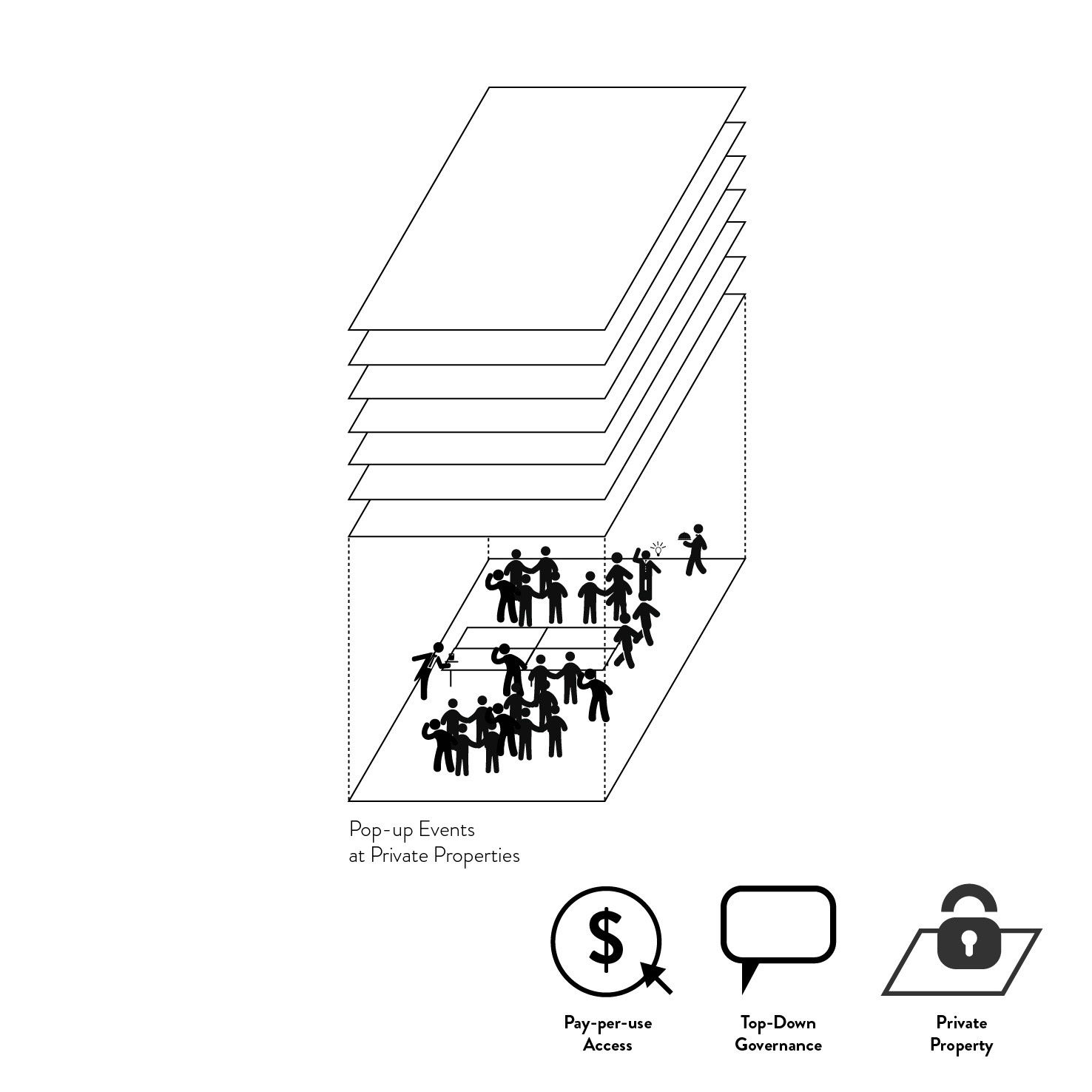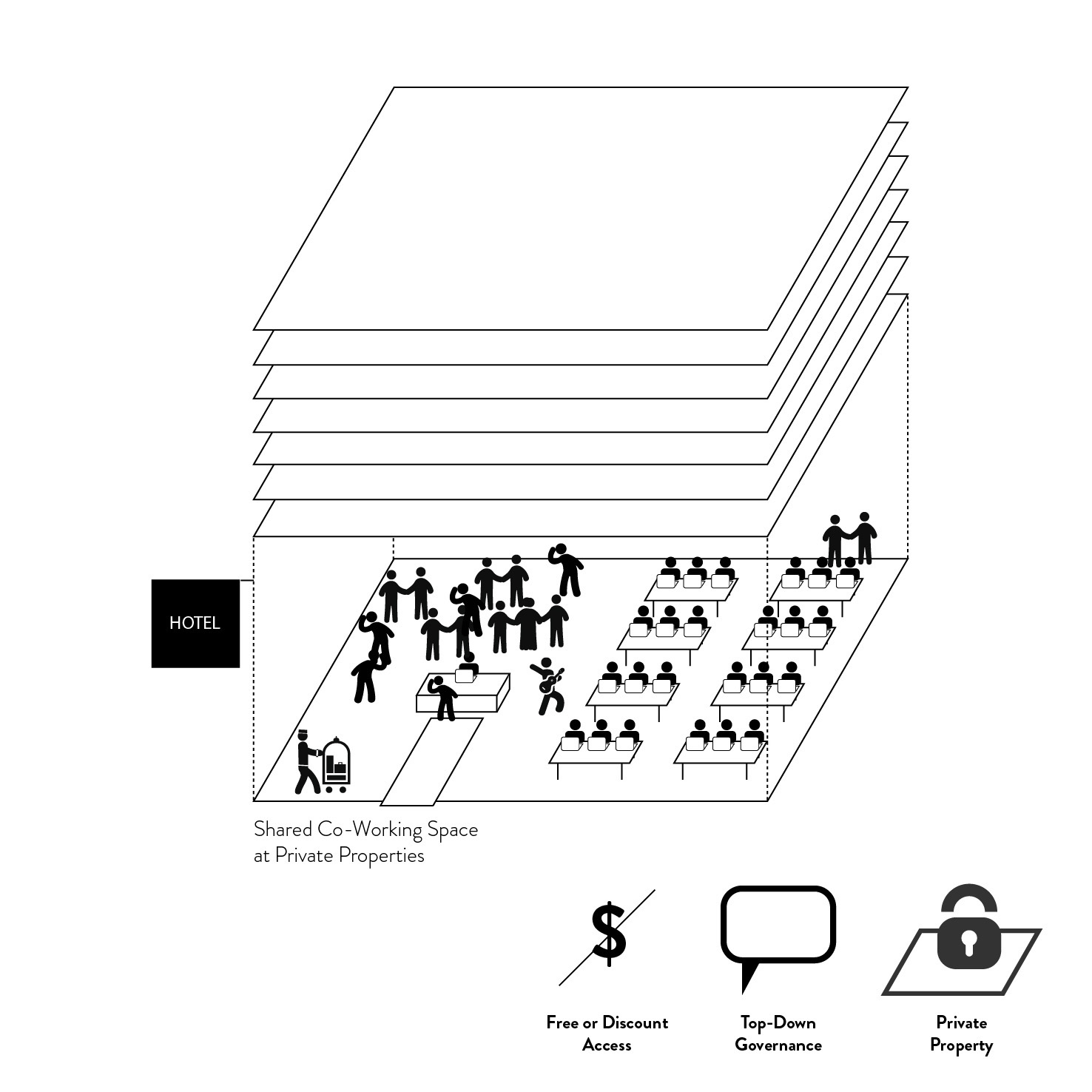
Typology

Public Commons
Public commons are cultural and natural resources accessible to all members of a society, these resources are held in common, not owned privately, and in most cases governed and owned by public entities such as local or federal governments.

Public Private Partnership
A public–private partnership (PPP, 3P or P3) is a cooperative arrangement between two or more public and private sectors, typically of a long-term nature. Fairly widely adopted in property development, public land are developed and/or run by private entities, with mandates given for public benefits such as public spaces or affordable housing.

Subscription Commons
A form of “Private Commons”. Subscription commons typically charge a recurring membership price for anyone to access a shared used of private property or amenities. In most cases membership exchange is a financial arrangement with flexibility to roll-on / roll-off as needed, such as a co-working space.

Pay-per-use Commons
A form of “Private Commons”. Pay-per-use commons typically charge a one-time-fee for anyone to access private property or amenities for a fixed duration of time from a couple of hours to a few months. The “time-share” aspect of pay-per-use commons allow a variety of users to access such private property. It lowers the entry barrier for more people to access traditionally closed-off properties or amenities.

Subsidized Commons
A form of “Private Commons”. Subsidized commons are usually owned by large private corporations that open up their private property for anyone to freely access. Sometimes there are incentive from public entities (e.g. increased floor-area-ratio for provision of public plaza), other times it is a form of branding or marketing strategy, yet in some cases it is purely for philanthropic purposes.

Cooperatives
A cooperative is a self-governed or independent group united voluntarily to meet their common economic, social, and cultural needs and aspirations through a jointly-owned and democratically-controlled entity. Self-governance and collective ownership or stewardship is key in cooperatives. Usually property is acquired as a private property and then turned into a cooperative ownership or management structure.

Community Land Trust
A community land trust (CLT) is a nonprofit corporation that develops and stewards affordable housing, community gardens, civic buildings, commercial spaces and other community assets on behalf of a community. “CLTs” balance the needs of individuals to access land and maintain security of tenure with a community’s need to maintain affordability, economic diversity and local access to essential services. Land is typically owned by CLT purchased from private or public entities.